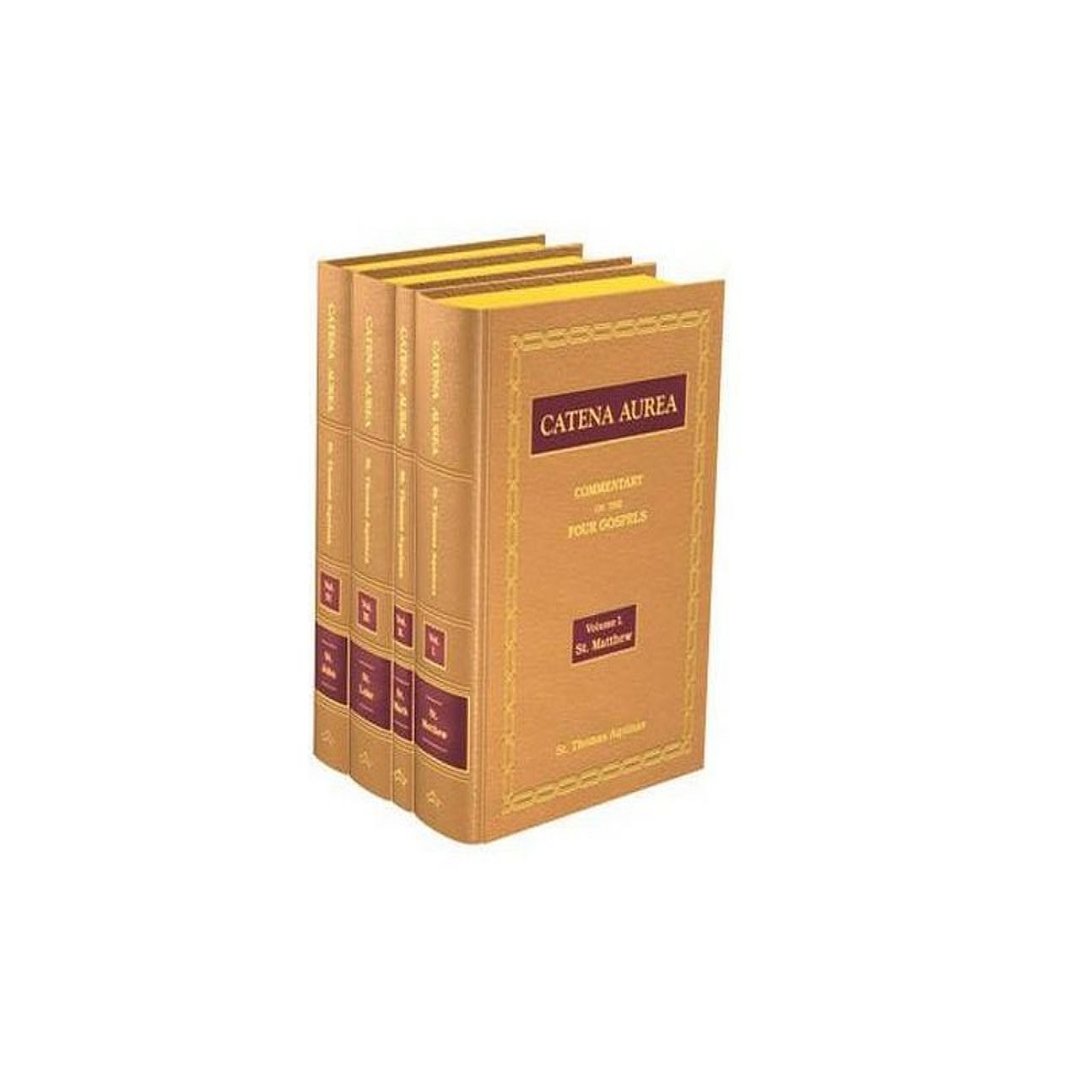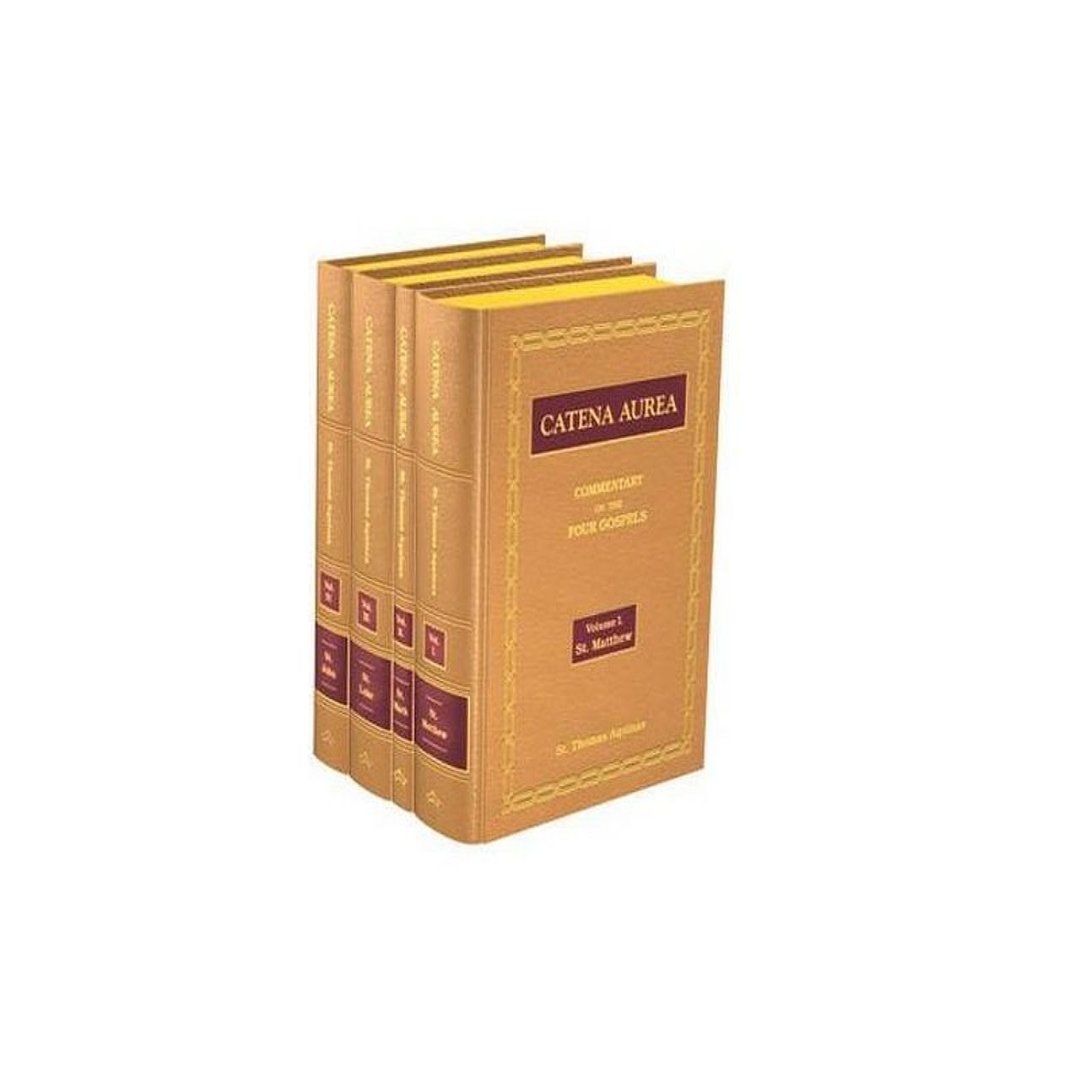OUR LADY OF GOOD SUCCESS CATHOLIC TRADER
CATENA AUREA by SAINT THOMAS AQUINAS
CATENA AUREA by SAINT THOMAS AQUINAS
Low stock: 2 left
Couldn't load pickup availability
This is published by Baronius Press in Leather Hardback, 4-Volume Set.
The text of this edition has been digitally reset to faithfully reproduce that of the 1841 edition of Catena Aurea as published by John Henry Parker, Oxford; and J. G. F. and J. Rivington, London 1841.
St. Thomas Aquinas' Catena Aurea is a masterpiece anthology of Patristic commentary on the Gospels – it includes the work of over eighty Church Fathers.
St. Thomas Aquinas’ work demonstrates intimate acquaintance with the Church Fathers and is an excellent complement to the more recent attempts to understand the inner meaning of the Sacred Scriptures. For each of the four Gospel writers, the Catena Aurea starts by indicating the verses to be analyzed, then phrase-by-phrase, provides the early Fathers’ insights into the passage.
The unchanging rule of the Church is that “no one [is] to interpret the Sacred Scripture… contrary to the unanimous consent of the Fathers” (Vatican I). Just as in our own day there has been renewed interest in the Church Fathers, so in the 13th century, when the Catena Aurea was compiled, the western church was undergoing a similar revival of interest in the ancient patristic authors – and the works of many Eastern Fathers were translated from Greek to Latin for the first time. During this period there was increasing hunger for the true and authentic interpretation of Scripture, which the Church Fathers hold the key to.
St. Thomas Aquinas was commissioned to write the Catena Aurea by Pope Urban IV, in order that an orthodox Patristic commentary on the Gospels was readily available to all readers. John Henry Newman, who is widely expected to be canonized next year, was responsible for its translation into English in 1841. Cardinal Newman hoped that the Catena would become a source of catechesis within the family and the Church. Cardinal Newman’s edition of the Catena Aurea is one of the jewels of the 19th century Catholic Restoration, making the scholarship of the Fathers available to a wider audience. As with many 19th century texts it employs a sober, dignified style of English, which is eminently suitable to the unsurpassable mysteries of the Catholic Faith.
The Catena Aurea, compiled by one of the Catholic Church’s greatest minds, is of immeasurable use to priests writing homilies, lay people engaged in private or family study or of the Gospels and religious instructors will find it an invaluable help in preparing lessons. It is the perfect companion to study the Scriptures in detail and receive the wisdom of St. Thomas on particular passages.
Consider the Catena Aurea as a discussion of the Gospels among the supreme theologians of the Church. Their exegesis is astonishing! A worthy recommendation for the serious student of the Bible is a copy of the only work that Aquinas was known to carry around with him.
About the Author:
Thomas Aquinas was born in 1225 in Sicily. He joined the Benedictine abbey of Montecassino at the age of five to begin his studies. At the age of sixteen, he was transferred to the University of Naples, where he became familiar with the revival of Aristotle and the Order of the Dominicans. Aquinas continued to study in Cologne in 1244 and Paris in 1245. Returning to Cologne, he became a lecturer in 1248. As a theologian of great renown, he travelled throughout Europe, and when not lecturing or teaching, Aquinas participated in public life and was an advisor to kings and popes.
Thomas Aquinas died on March 7, 1274, and fifty years after his death, Pope John XXII proclaimed Thomas Aquinas a saint. In 1879, Pope Leo XIII made Thomas Aquinas the patron saint of education.
Share


